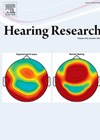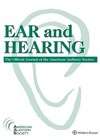You searched for "ChatGPT"
Small but significant
6 January 2023
| Jennifer K Stott
|
ENTA - Audiology - Adult, ENTA - Audiology - Diagnostic, ENTA - Head & Neck, Maxillofacial Surgery, Neurotology, Otology, ENTA - Tinnitus
|
Aminoglycosides, Deafness, Hearing loss, Human, Loop diuretics, Ototoxicity, Stria vascularis
These authors try to circumnavigate the conundrum of what is influenced by what. For something so small, the impact of the Stria Vascularis cannot be understated. The difficulty in reviewing the influence of loop diuretics or aminoglycosides on the Stria...
Where is it?
Humans’ ability to process sound is a multi-faceted phenomenon. It is a marvel which likely changes through our ageing process and is influenced by a myriad of factors. This paper examines the particulars of the dimensions of sound processing –...Taking a fresh look at otoacoustic emissions
1 May 2018
| David T Kemp
|
ENTA - Audiology - Adult, ENTA - Audiology - Diagnostic, ENTA - Audiology - Paediatric
So what has changed in four decades of OAEs? Do we now have all the answers? Have we reached our optimum recording ability? Professor Kemp explains what we know, what we don’t know and what’s to come. In the 40...
Recent changes in vestibular science and assessment
27 February 2020
| Sally M Rosengren
|
ENTA - Audiology - Adult, ENTA - Audiology - Diagnostic, ENTA - Otology, ENTA - Vestibular Disorders
Clinical assessment of the dizzy or imbalanced patient is all about the patient’s history. History, history, history. But what about puzzling cases when we feel we need more information? Sally Rosengren gives us a rundown of the vestibular tests which...
EEG as a measure of neuroplasticity in children
6 January 2023
| Karen A Gordon (Prof), Blake C Papsin (Prof), Sharon L Cushing (Prof)
|
ENTA - Audiology - Paediatric, ENTA - Auditory Implants, ENTA - Audiology - Diagnostic
Measuring changes in neural activity can teach us a lot about hearing loss and the effect of gained functional hearing. In this article, the authors describe how electroencephalography (EEG) is being used to effectively measure such changes in children with...
Moderating effect of hearing aids on association between hearing loss and brain structure?
5 July 2022
| Patricia Ward
|
ENTA - Audiology - Adult
Previous studies have suggested links between age-related hearing loss and structural changes in cortical regions with auditory and language functions, which could be causative of cognitive decline linked to the condition. The authors reason reduced sensory input could be causative...
What do animal models tell us about tinnitus and hyperacusis?
Do animals have tinnitus? The obvious question to ask is: do animals have tinnitus? It is known that tinnitus is a conscious percept and as such affected by attention and not audible during sleep. For it to be demonstrated that...Thyroidectomy patient survey regarding voice outcomes
30 April 2020
| Shabbir Akhtar
|
ENTA - Thyroid / Parathyroid Surgery
One of the common adverse effects following thyroid surgery is a change in voice, which may be related to iatrogenic injury to the recurrent laryngeal nerve or superior laryngeal nerve during surgery or by direct cancer involvement. The burden of...
The hippo and the nose
1 November 2019
| Hassan Mohammed
|
ENTA - Speech and Language Therapy
|
Hippo-YAP pathway, cell proliferation, epithelial cells, epithelium remodeling, nasal polyps
Chronic rhinosinusitis with nasal polyps (CRSwNP) leads to histological changes including thickening of the basilar membrane and epithelial proliferation. Molecular mechanisms underlying these changes are still not fully clear. A signalling pathway called the hippo with Yes‐associated protein (YAP) as...
Assessing the impact of e-cigarette smoke on the vocal fold
10 March 2023
| Zach Shellman
|
ENTA - Laryngology / Swallowing / Voice
|
DNA damage, Vocal fold, cytotoxicity, e-cigarette, fibroblast
While the use of electronic-cigarettes (e-cigs) is increasing rapidly, little is known about the effects this has on the health of vocal fold. In this translational research study, authors compared the effects of e-cig vapour and cigarette smoke on an...
Sound localisation after bilateral cochlear implantation
1 October 2018
| Kerri Millward
|
ENTA - Auditory Implants, Otology
|
Bilateral, Child, Cochlear implants, Hearing aids, Hearing threshold levels, Localization, Simultaneous, Spatial hearing
Limited information is known about the localisation skills of paediatric cochlear implant patients who were good hearing aid users before their hearing deteriorated. As localisation is a skill often associated with good natural hearing, there is a worry that implants...
Hearing loss and QOL
1 September 2018
| Badr Eldin Mostafa
|
Hearing loss, Evaluation, Auditory rehabilitation, cochlear implant
This article evaluates the impact of hearing loss and its rehabilitation on the quality of life (QoL) of adults. The authors suggest that the currently used scale, Aphab, is long, complicated and does not take into account minor changes. The...











